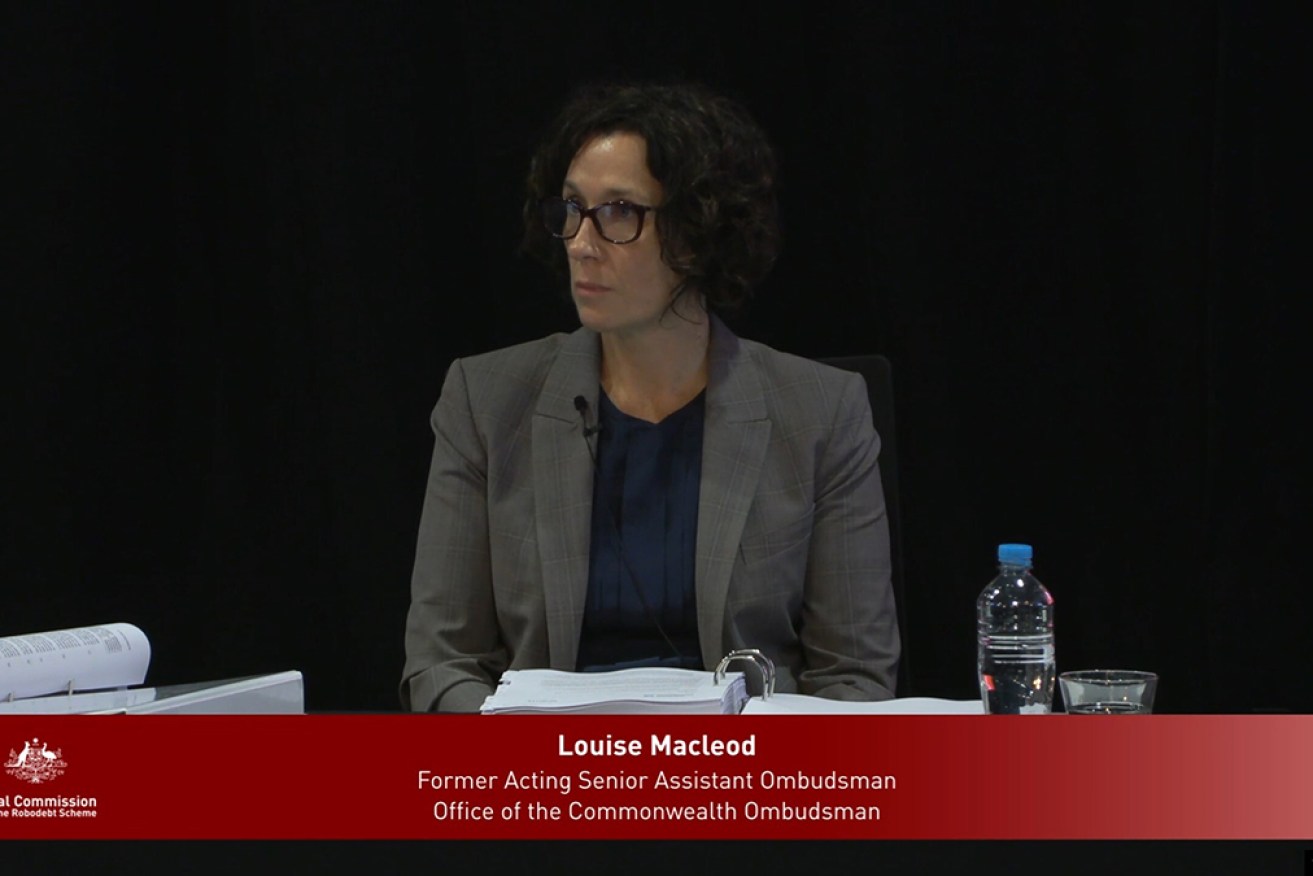Department withheld key robodebt advice from Commonwealth Ombudsman

Increases in complaints are always a red flag for the Ombudsman's office, Louise Macleod says. Photo: AAP
The department responsible for implementing the robodebt scheme withheld key documents flagging its potential illegality from an independent watchdog investigating the program, a royal commission has been told.
The commission is seeking to understand the role of the Commonwealth Ombudsman, whose 2017 report identified a number of flaws in the scheme but stopped short of declaring the “income averaging” debt calculation process unlawful.
But while giving evidence, senior assistant Ombudsman Louise Macleod was shown multiple documents, including emails flagging the scheme was potentially illegal, that she had never seen before.
Ms Macleod said the documents had not been provided to her office by the human services department during the investigation.
“It annoys the hell out of me and it’s really disappointing,” she said.
“This demonstrates (the department) weren’t participating in good faith.”
Ms Macleod said all departments investigated by the Ombudsman were expected to be forthcoming with relevant information and it was an offence not to provide it.
Earlier the commission heard the Ombudsman’s investigation was triggered by a dramatic rise in complaints from people who had received Centrelink debt notices.
Social security complaints made up two-thirds of the total received by the Ombudsman, but Ms Macleod said they almost doubled between October and December 2016 after the scheme came into force.
“Increases in complaints are always a red flag for the Ombudsman’s office,” she said.
The Ombudsman’s investigation into the scheme flagged problems with internal review mechanisms used by the human services department when they received a complaint about a debt.
Ms Macleod said it appeared the department was “circumventing proper administrative process” which meant complainants would not have the option to appeal their matter.
“Beyond that, you’re also talking about a cohort of people accessing the welfare system (who) don’t have the means to take it to the Administrative Appeals Tribunal or to the Federal Court,” she said.
“So we were concerned about that.”
Former Commonwealth Ombudsman Michael Manthorpe is due to front the commission on Wednesday afternoon.
The robodebt scheme ran from 2015 to 2019 and used income averaging of tax office data to calculate and raise debts.
The commission is examining how the scheme was allowed to continue, given significant concerns about its legality raised by early 2017.
More than $750 million from 380,000 people was unlawfully recovered through the program and the automated debt notices have been blamed for contributing to multiple suicides.
Meanwhile, Deloitte partner Elea Wurth – tasked by the commission with producing a technical study of robodebt – said a review found artificial intelligence was not present in the program.
Rather it was a “relatively basic” automation system that could not learn from mistakes or become more accurate over time, unlike other AI programs that have the ability to “self-learn”.
“The robodebt scheme did not have algorithms that allowed for any self-learning over time – it was very defined and specific to achieve a very specific goal,” Dr Wurth said.
“It was extremely rigid. Once those rules have been coded, the system itself stayed in place until a human comes in and changes the rules.”
The Deloitte report recommended methods to improve trust with automated programs in the future, including “human-centred design”.








